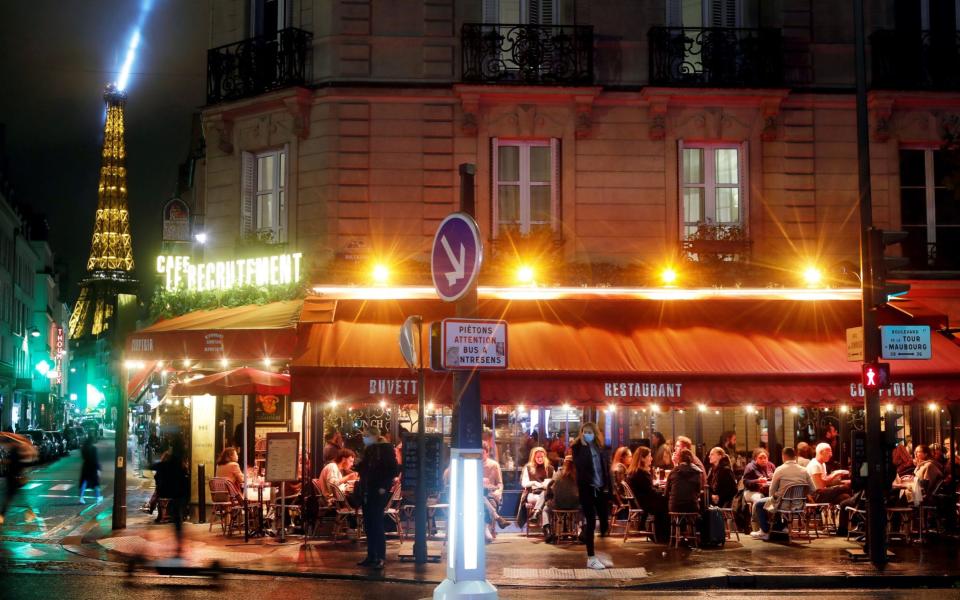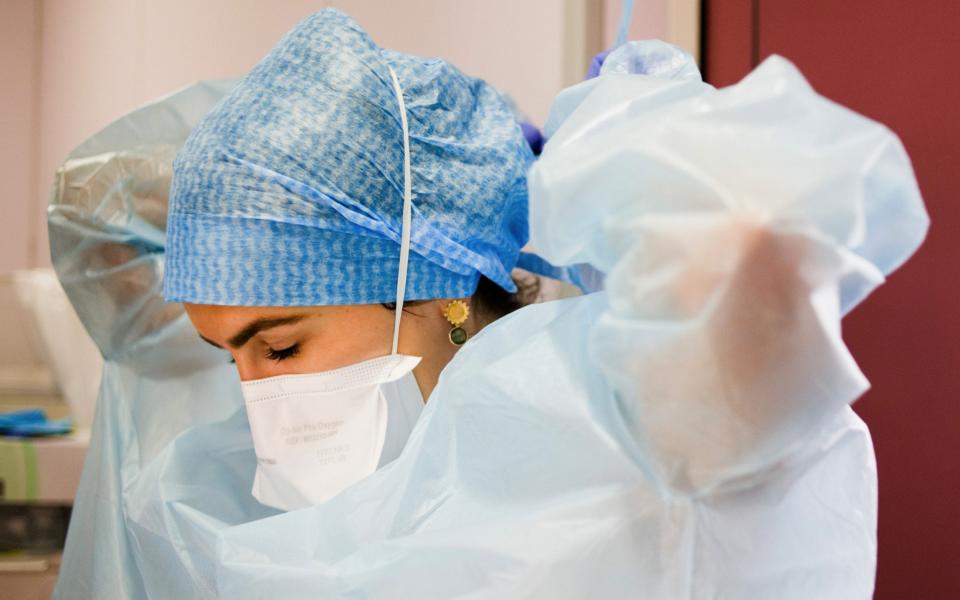The Covid continent: France on the brink of shutdown, rebellion in Italy and lockdown light in Germany


The French government is considering a month-long national lockdown to combat a rise in coronavirus infections which could take effect from midnight on Thursday.
The lockdown under consideration would be "more flexible" than the restrictions imposed in March this year, France's BFM TV reported on Tuesday.
French President Emmanuel Macron is due to make a televised address on Wednesday but his office did not comment on whether he would announce such a measure then.
The French leader has held meetings to review the state of the epidemic in recent days. According to BFM TV, Mr Macron's government is considering a slightly more flexible lockdown than the two-month shutdown that began in mid-March. Schools could remain open even as restrictions on people's movements become more severe.
Gerald Darmanin, the interior minister, warned the country to prepare for "difficult decisions" after the country reported its highest daily death toll since April 22.
Some of the strictest restrictions currently in place anywhere in Europe have so far failed to halt the spread of the virus.
French eat in the morning to beat curfew
In Lyon, restaurants have responded to a 9pm curfew by reviving a traditional but long-abandoned morning meal called the ‘mâchon’.
French diners are reluctant to eat early enough to return home before the curfew, so a dozen ‘bouchons’ — traditional Lyonnais restaurants — are trying to tempt them by serving the local version of brunch from 10am to noon on Fridays, Saturdays and Sundays.
The ‘mâchon’ features the famed specialities of Lyon, which prides itself on its distinguished gastronomic heritage.

It would typically consist of ‘jambon persillé’, cooked ham in jelly seasoned with parsley, ‘cervelle de canut’, a dish of soft fromage blanc seasoned with chopped herbs, shallots and salt, poached sausage in red wine sauce, and ‘andouillette’ chitterling sausage with apple purée, and a praline tart to finish.
Traditionally, several dishes would be placed on the table for people to serve themselves, but the virus that has brought the “mâchon” back to life has also forced it to adapt, so it is now served as a succession of small individual dishes, washed down with a glass or two of wine.
Yann Lalle, owner of the Poêlon d’Or restaurant, told BFM TV: “We’re trying to adapt to the new timings and the curfew and we hope the mâchon will help all of us keep our spirits up.”
France is one of several European countries considering toughening restrictions further.

Anger erupts in Italy
Protestors in Italy smashed windows, looted shops, and hurled petrol bombs at police in anger at the country’s new anti-Covid regulations.
Anger and frustration with the Italian government’s latest package of measures, including the compulsory closing of bars and restaurants at 6pm, spilled over into violence on the streets of Milan and Turin late on Monday night.
In Turin, protesters set wheelie bins on fire and looted luxury outlets, including a Gucci shop.
In Milan, trams were vandalised and police fired tear gas as demonstrators gathered outside the offices of the regional government of Lombardy.

The clashes in the north of the country followed similar unrest in Naples and Rome at the weekend.
While most protesters were law-abiding, a minority engaged in clashes with riot police, throwing stones, firecrackers and petrol bombs.
Police blamed much of the violence on extremists from the far-Right and far-Left, as well as radical 'ultra' football fans.
Italians largely accepted the country’s national lockdown between March and May, with most people supporting the government and children making posters with pictures of rainbows and the message “It’s all going to be OK.”
But that consensus is showing alarming signs of fraying after the government toughened its anti-virus restrictions, shutting bars and restaurants at 6pm and ordering the closure of gyms, swimming pools, theatres and cinemas.
The measures – the strictest since the end of the national lockdown in May - will be in place for at least a month.
Many Italians are now worried about their livelihoods, having sustained financial losses during the national lockdown in the spring.

Restaurant and bar owners held a rally in Milan, holding up placards which read: “If we go under, you go under too.”
While businesses called for fewer restrictions, some scientists said more were needed.
Walter Ricciardi, a doctor and an advisor to the government on the pandemic, called for lockdown to be imposed on Milan and Naples, two cities that have been hard hit by the second wave of infections.
Guiso Bertolini, a senior health official in the northern region of Lombardy, said the situation for accident and emergency departments was “dramatic.” The only option was to “close everything, a lockdown at a national level". The measures taken by the government were “not capable of containing the monstrous phenomenon we are faced with".
Tough measures to come in Germany
In Germany, several media outlets reported that Angela Merkel intends to push for a “lockdown light” at a crunch meeting with federal leaders on Wednesday.
With cases numbers having tripled in the past fortnight, Berlin is coming under increasing pressure to enact stricter measures.
Peter Altmaier, the economy minister, said that the number of new coronavirus infections in Germany is likely to reach 20,000 a day by the end of the week.
"We are dealing with exponential growth," Mr Altmaier said. "In Germany the number of new infections is rising by 70-75 per cent compared to the week before."
According to a report in Bild newspaper, the Chancellor will propose to state leaders that they order all bars and restaurants to close as well as ban all public events. The lockdown would not affect the retail sector.
Schools and kindergarten would also be allowed to stay open except in areas where there is a particularly serious outbreak.
Some in the Chancellor’s CDU party are pushing for more draconian measures. Thomas Strobl, the deputy minister, said on Monday he was in favour of a 10-day lockdown in which the whole population would have to stay home.
Mr Storbl said that by shutting down “absolutely everything” Germany would "probably be able to bring the spread of the virus to a halt” and thus be able to reopen by Christmas.
Around 11,400 new cases were reported in Germany on Tuesday as well as 42 deaths.

Face masks mandatory
Portugal made the wearing of masks in outdoor public spaces compulsory as of Wednesday.
Those who fail to comply with the law, which will be in place for 70 days, could be fined up to €500.
Russia also ordered people to wear face masks in crowded public places as well as in taxis and on public transport.
The government asked regional authorities to consider an overnight curfew on bars and restaurants after a surge in coronavirus cases.
Russia recorded more than 16,000 infections on Tuesday and has seen a surge in new cases in recent weeks.


